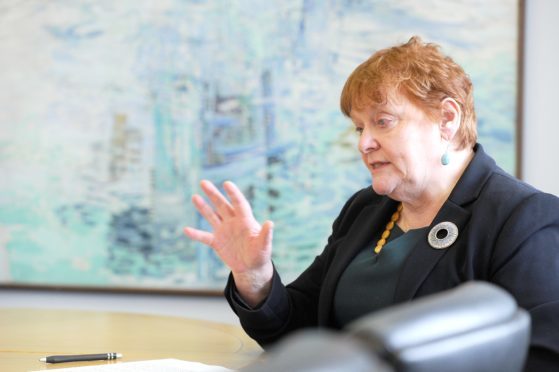The leader of Highland Council has warned that the proposed replacement for European funding “won’t touch the sides” of what the north needs.
Council leader Margaret Davidson says Highland’s low carbon future – and the general outlook for its farmers, crofters and fisherman will be ‘seriously handicapped’ without equivalent funding from government.
With the drawbridge to the EU going up in less than five weeks, Mrs Davidson says she’s disappointed that the detail around the UK Shared Prosperity Fund (SPF) intended to replace existing EU Funding Programmes is still not available.
Highland has received around £30m annually from the European Regional Development Fund (ERDF) over the past six years, plus around £40m a year from the Common Agricultural Policy (CAP) for farming, crofting and fishing.
Mrs Davidson said: “The can has been kicked down the road again and we will have to wait until spring to hear the real detail around this.
“We’ve been told there’s around £25m for Scotland that but won’t touch the sides of what’s needed.
“I’m seriously concerned about how we go forward.
“We can’t go into a low-carbon future in Highland without clarity about this funding, we can’t plan for it.”
Once the money is allocated, Mrs Davidson said a bidding war for it must be avoided.
“We need a decent allocation based on our previous spend and we need to be given the money without officers wasting weeks and months of their time in bidding wars with other local authorities.”
Councillor Jimmy Gray who chairs the council’s Brexit working group said the delay may present an opportunity.
He said: “I would have expected to know more detail by now on the UK Shared Prosperity Fund but this delay may present an opportunity for both Governments to focus on local and regional needs.”
Highland economist Tony Mackay said it was very important for the Highlands and islands economy to receive similar assistance from next year onwards.
“However, I think we must accept that it will be some time before the picture becomes clear because of the impact of the coronavirus pandemic and the ongoing financial disputes between the Scottish and UK Governments.”
Martin Johnson, director of strategy and regional economy at Highlands and Islands Enterprise (Hie) said the agency had received almost £100m in EU funding since 1994, with over £1bn in structural funds invested in the region since 1994.
“These funds have been accessed by a wide range of organisations – public, private and third sector – and have funded infrastructure including roads and harbours, business premises and research facilities, cultural activities, business development programmes, skills programmes and community assets.
“The details of the SPF are still being developed and we will work with partners to seek SPF investment in the region.”
